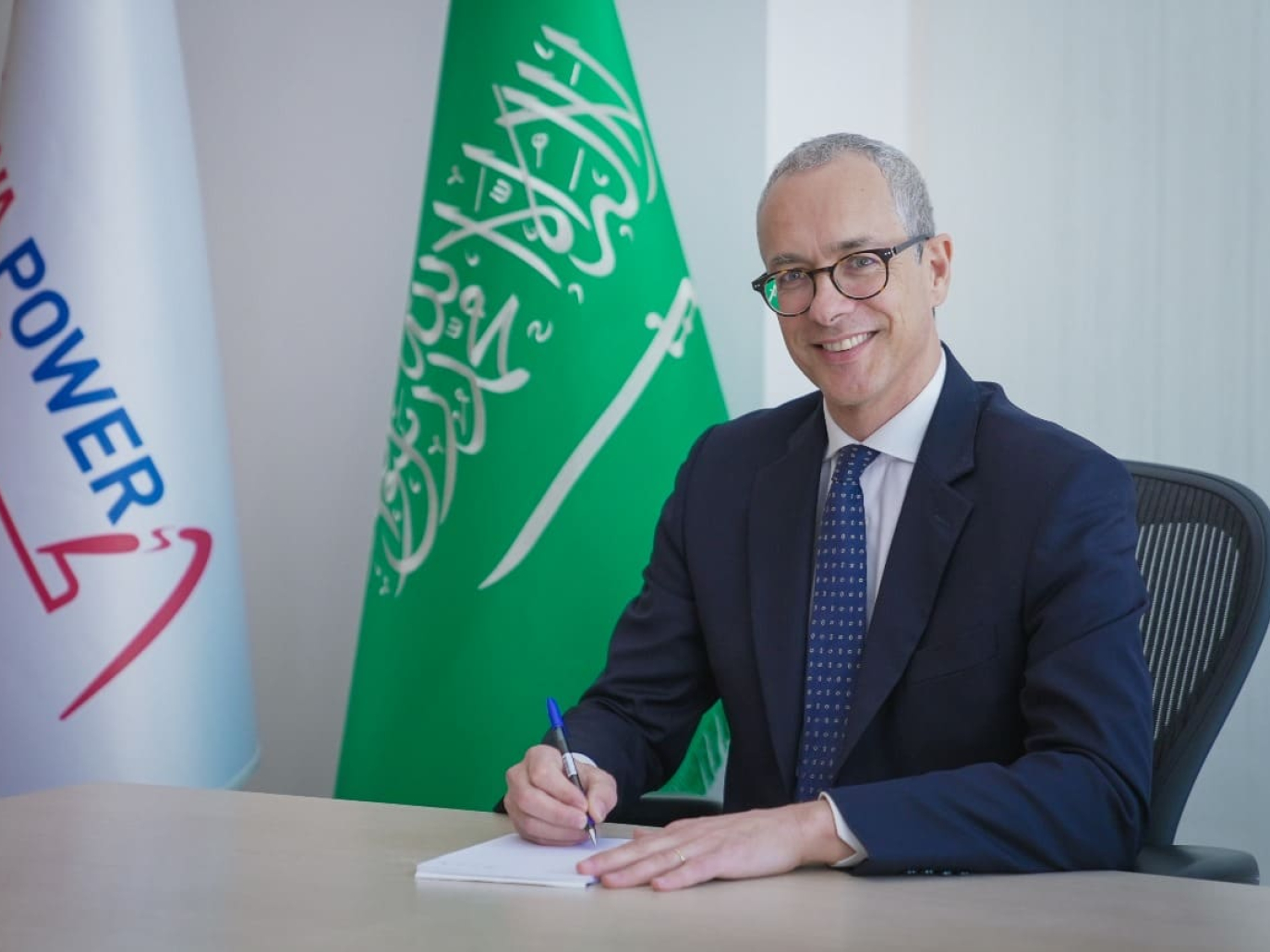This article is also available in Italian / Questo articolo è disponibile anche in italiano
From Riyadh - In the heart of the Arabian desert, Saudi Arabia is rewriting its energy and economic future through the Vision 2030 programme, a national strategy that aims to reduce dependence on oil, diversify the economy and develop key sectors such as renewable energy, urban innovation and environmental sustainability.
Among its symbolic goals is to plant one million trees to combat heat waves that push temperatures well above 55 degrees. In this context of profound transformation, ACWA Power is positioning itself as one of the main players, with a multi-billion dollar investment plan by the end of the decade.
ACWA Power's experience
Founded in Riyadh and listed on the Saudi Stock Exchange, ACWA Power is now one of the largest global players in the renewable energy and water desalination sector. With a turnover of $1.6 billion in 2024 and a portfolio of 109 projects totalling 94 gigawatts of installed capacity – 52 GW of which comes from renewable sources – the company is undergoing a profound transformation, focusing on photovoltaic (PV) concentrated solar power (CSP) and wind power, but also on large-scale green hydrogen production. ‘ACWA Power has the pioneering spirit needed to tackle the transition, and was the first company to invest in green hydrogen at this level’, the company told Renewable Matter.
ACWA Power's strategy responds to a vision that CEO Marco Arcelli defines as an ‘energy quadrilemma’: not only accessible, sustainable and secure energy, but also quick to implement. ‘If the transition comes in 2060, it's too late,’ he told Materia Rinnovabile. To speed things up, ACWA Power has been mandated by the Saudi Public Investment Fund (PIF) to lead 70% of the national renewable energy programme.
The company's international trajectory includes active or developing projects in countries such as Senegal, Mauritania, South Africa, Malaysia, Indonesia and the Philippines. In parallel, ACWA Power is working to create a value chain between Saudi Arabia and Europe for the export of renewable energy and green hydrogen, including through initiatives such as the India-Middle East-Europe Economic Corridor (IMEC), designed to facilitate energy logistics between the two areas.
The relationship with China, a decade-long collaboration
One of the most important strategic directions for ACWA Power at the moment is its relationship with China. This market represents not only a fundamental base for the supply chain – particularly for batteries and components for renewable energy plants – but also an area for expansion. ‘We have had a long-standing relationship with China for 15 years, with over $50 billion worth of projects completed together,’ Arcelli recalled in an interview at the Riyadh headquarters.
After an initial approach focused on procurement, in 2023 ACWA decided to invest directly in the Asian country, where it now operates plants with a capacity of over 300 MW and has created a dedicated team for the development of new projects. ‘China is a vast and complex market, but also a great opportunity for our growth,’ explained the company's ESG team.
The commercial evolution of relations with Europe
At the same time, ACWA Power has recently significantly strengthened its ties with Europe by signing a series of strategic agreements and memoranda of understanding with international partners, with the aim of creating a value chain for the export of renewable energy and green hydrogen between Saudi Arabia and the Old Continent. The agreements, signed in Riyadh during the Renewable Energy and Green Hydrogen Export Workshop under the auspices of the Saudi Ministry of Energy, involve leading companies such as Edison (Italy), TotalEnergies Renewables (France), Zhero Europe (Italy) and EnBW (Germany).
In particular, a joint plan has been defined to assess the feasibility of large renewable energy plants for export and the implementation of energy corridors between the Middle East and Europe, in line with the strategic IMEC (India-Middle East-Europe Economic Corridor) project. ACWA Power has also signed specific agreements with HVDC technology suppliers such as Prysmian, GE Vernova, Siemens Energy and Hitachi to develop advanced cross-border energy transmission infrastructure.
Among the key projects is the “Yanbu Green Hydrogen Hub”, developed with German partner EnBW, an integrated plant with renewable energy production, desalination, electrolysis and export terminal, which will become commercially operational by 2030.
Commitment to ensuring universal access to drinking water
Desalination is also at the heart of ACWA Power's technological offering, a critical sector in areas of high drought such as the Middle East, but also increasingly relevant in emerging regions such as Africa and Southeast Asia.
The company operates plants with a capacity of 9.9 million cubic metres of water per day and has gradually moved away from thermal desalination in favour of reverse osmosis (RO) technology, which is more efficient, less energy-intensive and has a lower environmental impact. ‘It requires less energy, is less carbon intensive and more economical,’ says the ESG team, which also points out that every new project is preceded by an environmental and social impact study.
Contributing to the green revolution in the country
Finally, the company also stands out for its environmental commitment: as part of the Saudi Green Initiative, ACWA has committed to planting one million trees by 2030. In 2024 alone, over 100,000 will be planted, thanks in part to a nursery founded in 2022 that has already distributed over 360,000 seedlings.
ACWA Power is now a symbol of Saudi Arabia's transformation: a company that, from being a regional champion, is establishing itself as the world’s largest private water desalination company, global leader in energy transition, and first mover into green hydrogen. In addition to infrastructure, the company also invests in human capital.
The Energy and Water Academy founded by the company in Rabigh has trained more than 15,000 students in 17 technical specialisations, offering full scholarships and contributing to the development of local skills, including in the countries where it operates, such as Uzbekistan.
Cover: Marco Arcelli, CEO ACWA Power



